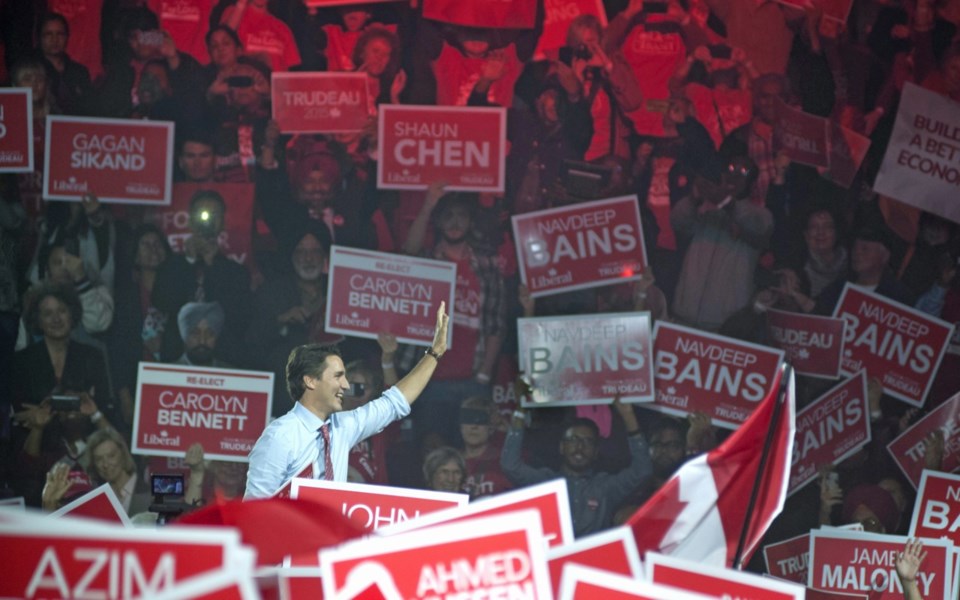with less than three months until the federal election, there doesn't appear to be any national campaign consensus among Canada's political parties.
"It seems like there isn't the same sort of national conversation there was in some previous elections," said Stewart Prest, lecturer in political science at Simon Fraser University (SFU).
"We have the Liberals that really want to talk about issues of inclusiveness and reconciliation, and a balancing of energy versus the environment, and then we have the Green Party which is just really focused on the environment.
"And then the Conservatives are really focusing more on things like energy politics, and critiquing aspects of the Liberal record ... and then that's on top of the social issues that come up with the People's Party of Canada.
"And so it seems like we're running in quite a number of different directions right now."
The siloed campaign approaches are a departure from the 2015 election, which saw the Liberals making large proclamations and promises in their attempt to oust the sitting Conservatives.
This time around, it seems to be about firming up core votes in the hopes of ekeing out a winning coalition, Prest said.
The centrist approach may work in places like Central Canada, parts of Quebec or around Toronto, he said, but the increasingly polarized provinces may find it tough to swallow.
"I get the sense that [we're] maybe having this fragmented conversation where what seems like the 'common sense view' really varies by region in a way that we haven't seen in maybe a couple decades," Prest said.
"It just feels like we're going in a number of different directions, and I think that's why parties are looking to really coalesce core votes and perhaps not looking to score a knockout victory where they bring in these large, new types of voters to their coalition."
In the West Vancouver-Sunshine Coast-Sea to Sky Country riding, Whistler voters have just three confirmed candidates to choose from so far: the Conservative Party's Gabrielle Loren, the Green Party's Dana Taylor and the People's Party's Robert (Doug) Bebb.
Earlier this month, outgoing Liberal MP Pamela Goldsmith-Jones told the Coast Reporter she expects a new candidate to be in place by mid-August, while the NDP is hoping to field a candidate by the end of the month.
"As far as the NDP are concerned, that West Vancouver riding, the NDP has not fared that well before in previous elections," said Cara Camcastle, a professor in SFU's political science department.
"And every party has [limited] resources, so they have to focus where they can, where they expect to do better."
From Camcastle's point of view, the environment represents the biggest issue of the campaign.
"I think it's a national issue this time, which is interesting," she said. "It's pleasant to see, and it's very important, I think, given the urgency. The scientists are urging action needs to be taken."
Unsurprisingly, Camcastle gives the edge on the environment file to the Green Party, and believes Taylor has a shot in the Sea to Sky.
"Especially since with the Liberals, there are more people that are unhappy with how they haven't gone far enough in terms of supporting the green-energy sector," she said.
"I think the Green Party certainly has an edge ... Their policies indicate how much we need to move away from subsidizing, building and expanding pipelines, and instead place more attention on, actually, the green-energy sector, which is there and is a major contributor in terms of employing people, and prosperity."




